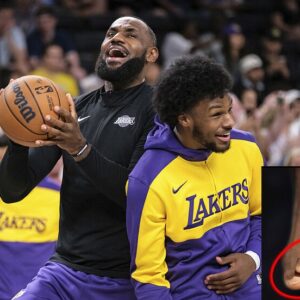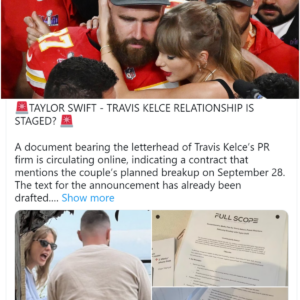Bruno Mars burst onto the music scene in 2010 with his infectious debut album Doo-Wops & Hooligans, featuring hit singles like “Just the Way You Are” and “Grenade.” These early songs established Mars as a master of catchy, romantic pop tunes that captured the exhilarating highs and heart-wrenching lows of love. Over a decade into his career now, Mars has matured as an artist, and his evolution is reflected in the love songs across his discography. By examining some of his most iconic tracks in chronological order, we can trace Mars’s musical odyssey and see how his perspective on romance has developed nuance, depth, and wisdom.

The Infatuation and Chase of Young Love
Songs from Mars’s early career epitomize the breathless infatuation and passionate pursuit of new love. “Just the Way You Are,” his breakout solo single, is an effusive ode to a lover’s beauty and spirit. Mars promises the object of his affection that she’s perfect just as she is, flaws and all. The song became a massive hit, spending weeks at the top of charts internationally. Its success established Mars as a master of writing sweet, feel-good love songs with wide appeal.
“Grenade,” another smash single from Doo-Wops & Hooligans, depicts the dramatic lengths one might go to in pursuit of love. Mars sings of a toxic, one-sided relationship where he’s willing to sacrifice everything for someone who won’t do the same. The over-the-top proclamations in the chorus (“I would catch a grenade for you / Throw my hand on a blade for you / I’d jump in front of a train for you”) reflect an immature conception of love as martyrdom and self-sacrifice. But the song’s cathartic power chords and soaring vocals make it a compelling encapsulation of the blind devotion of young romance.
Mars also explores the excitement of new flings and chasing crushes in tracks like “The Lazy Song” and “Runaway Baby.” The latter depicts Mars eagerly pursuing a new love interest, reflecting the thrill of the chase in a new relationship. “Girl I’m perfect for you, and you’re perfect for me,” he croons with confidence and bravado. Even when the object of his affection plays hard to get, he remains undeterred: “You can run, you can hide, but you can’t escape my love.”
These early chart-toppers established Mars’s talent for infectious pop-rock earworms. But the view of romance in these songs also reflects the idealism and selfishness of youth. His lyrics focus on infatuation, attraction, and winning someone’s affection by any means necessary. For Mars, love is exhilarating but also dramatic and extreme. The songs capture a one-sided perspective focused solely on pursuing one’s own desire.
The Pitfalls of Possession and Jealousy
As Mars continued honing his retro-pop sound on his 2012 album Unorthodox Jukebox, some tracks adopted a darker perspective on relationships. On songs like “When I Was Your Man,” Mars explores regret over a failed relationship. He movingly expresses remorse for not appreciating his partner more and being attentive to her needs. This hints at a dawning maturity and awareness that relationships require mutual effort.
However, other songs on the album slip back into more problematic tropes like possession, jealousy, and mistrust. “Young Girls,” while intended as a tongue-in-cheek critique of playboys, still objectifies women and perpetuates stereotypes. On the brooding “Gorilla,” Mars is suspicious and jealous, demanding to check his lover’s phone and know who she’s been talking to. The song’s murky rock textures match the obsessive paranoia in the lyrics.
And on “Treasure,” Mars comes across as possessive, reducing his partner to an object he owns: “Baby squirrel, you’s a sexy motherf****r / Give me your, give me your, give me your attention, baby.” The song is clearly intended as an affectionate serenade, but lines like these demonstrate Mars’s early immaturity when conceptualizing healthy relationships.
Viewing partners as possessions to lock down is a common pitfall of youthful love. Mars had yet to develop the more enlightened perspective on romance that would emerge later in his career. The darker undercurrents on these tracks, though balanced out by more uplifting songs, reveal pitfalls like jealousy and obsession that can accompany immature love.
The Maturation into Commitment and Vulnerability
Mars’s songwriting took on more depth and nuance with his 2016 album 24K Magic. By this point nearly a decade into his career, Mars had matured both as an artist and a person. His evolution is audible on songs like “Versace on the Floor,” which depicts intimacy not as a conquest but as a sensual and mutual experience: “Let’s take our time tonight, girl / Above us, all the stars are watchin’ / There’s no place I’d rather be in this world.”
Whereas early songs focused on the thrill of the chase, “Versace” is about being present in the moment with a partner. Mars allows himself to be vulnerable, unsure if the woman he desires feels the same way: “I’ll be the light when you can’t see / I’ll be the wood when you need heat.” He is no longer demanding affection, but willing to patiently give it.
“That’s What I Like” similarly shows Mars’s perspective shifting toward commitment and long-term partnership. The song celebrates domestic bliss: “Gold jewelry shining so bright / Strawberry champagne on ice / Lucky for you, that’s what I like.” Mars makes it clear the trappings of wealth mean little without someone to share them with. He recognizes love is about giving, not taking.
Perhaps the clearest sign of Mars’s growth comes with “Marry You,” an ode to finding the one you want to commit your life to. Mars describes a spontaneous proposal that comes from simply being overwhelmed by love, not calculation: “It’s a beautiful night / We’re looking for something dumb to do / Hey baby, I think I wanna marry you.” After years indulging his fancies and playing the field, Mars shows a readiness to take his ability to love seriously and settle down.
24K Magic finds Mars integrating themes of commitment, vulnerability, and companionship that were absent from his earlier work. No longer putting women on pedestals or viewing them as conquests, he writes as a mature man seeking an equal partnership. The album reveals Mars gaining nuance in how he thinks about romantic relationships.
Owning Imperfection and Growing Together
Mars’s latest album, An Evening with Silk Sonic, co-created with Anderson .Paak, provides the clearest demonstration yet of the singer’s growth. On the gently grooving “Put On A Smile,” Mars acknowledges that even in the best relationships, there will be sadness and hard times. The song encourages a partner to lean on him during moments of vulnerability, demonstrating empathy and emotional intelligence he lacked as a younger artist.
And on the funky “After Last Night” featuring Thundercat and Bootsy Collins, Mars gets playfully real about the work required to maintain a relationship: “Just because we got it in last night / Don’t mean we gotta get it in today / Baby, we can play it by ear, see how we feel / There’s so much life left in our years.”
Here is a Mars comfortable with imperfections, cognizant that even once you commit to someone, there will be ups and downs. He recognizes the importance of communication, of progressing day by day. For the youthful Mars, love was about dramatic acts to prove oneself—catching grenades, throwing hands on blades. But the Mars of “After Last Night” sees love as a lifelong journey of growth—sometimes difficult, but navigated as a team.
This emotional maturity is equally clear on “Smokin’ Out the Window,” a smoldering heartbreak ballad. When a relationship ends, the younger Mars dealt in recriminations and finger-pointing. But here, Mars owns his missteps: “Is it broken? Baby, I’m hoping it’s not / Did I just bend it? I didn’t mean to go that far.” He takes responsibility for the failure and asks for one more chance to make things right.
Mars brings experience and wisdom to these love songs that simply were not present earlier in his career. He demonstrates humility, vulnerability, and patience. The blinding highs and lows of youthful romance have been replaced by something richer—a clear-eyed view of relationships as a lifelong endeavor to grow and learn together.
The Path to Maturity
Bruno Mars has come a long way from the cocky young crooner singing about grenades and runaway babies. By tracing his love songs across albums, we can see him evolve from a narrow focus on infatuation and conquest toward an appreciation of mutual effort, communication, and compromise.
Mars’s career arc shows an artist maturing in real-time through his work. We’ve watched him gain wisdom about what makes love last: embracing imperfections, giving more than you take, and recognizing that romance requires constant growth. Mars’s odyssey mirrors the journey we all take—from the blind intensity of first love to the nuanced view of relationships that comes with experience.
Of course, Mars’s hallmark ebullience and joy remain. The same charm and showmanship he displayed as a young singer still shine through. But it’s now balanced by a more rounded emotional intelligence. Simply put, Mars has grown up. His songs continue bringing out the romantic in all of us. But like the artist who writes them, they’ve evolved to reflect a deeper understanding of love.
News
Bruno Mars Abruptly Cancels Sold Out Concert In Israel After ‘Militant’ Group Launches Attack Killing More Than 200 Civilians
Bruno Mars Bruno Mars Abruptly Cancels Sold Out Concert In Israel After ‘Militant’ Group Launches Attack Killing More Than 200 Civilians War has broken out in Israel….
“Phenomenon” Bruno Mars caused a fever in the music industry after 4 years of absence
The male singer of famous hits in the international music industry, such as “Just the Way You Are”, “Grenade”, “The Lazy Song”, “Uptown Funk!”… has just reappeared….
Fans Question Bruno Mars about Where He Had Been after He Trolls Artists over Grammy Snubs
A few days after “Just the Way You Are” crooner dropped a witty Grammy-related post on social media, fans have begun asking him when he would release…
Nick Cannon thinks Bruno Mars has more hits than Beyoncé and Taylor Swift
Beyonce and Bruno Mars performed together at the Super Bowl 50 halftime show. Nick Cannon thinks Bruno Mars has more hit songs than Beyoncé and Taylor Swift….
FENDER HONORS GRAMMY-WINNING ARTIST, MULTI-INSTRUMENTALIST, SONGWRITER, AND PRODUCER BRUNO MARS WITH ARTIST SIGNATURE STRATOCASTER GUITAR
The Bruno Mars Stratocaster® Features the All New Mars Mocha Heirloom™ Finish, 1969 Vintage Stratocaster® Neck Shape and a Custom-Set of Bruno Mars Pickups that Personifies Mars’ Unique Style…
Bruno Mars Cancels Israel Show Amid Hamas Attack
Bruno Mars performs on December 02, 2016 in Los Angeles. B LACROIX/WIREIMAGE Bruno Mars’s sold-out concert in Tel Aviv on Saturday has been canceled, its promoters announced…
End of content
No more pages to load











